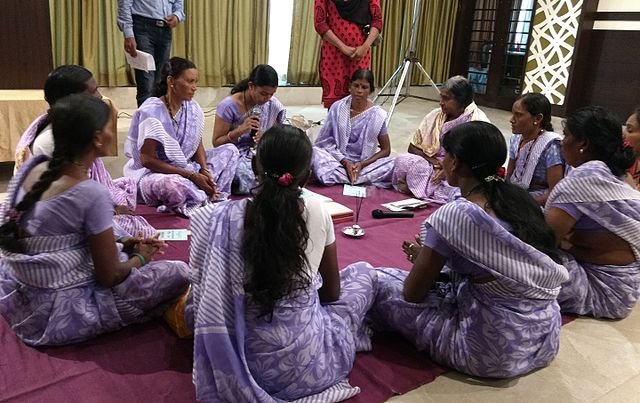The self-help group (SHG) movement holds immense potential for empowering marginalized communities, fostering entrepreneurship, and promoting socio-economic development. However, in Maharashtra, this movement has faced significant challenges, impeding its growth and progress. In this article, we will explore the reasons behind the stagnant momentum of the SHG movement in Maharashtra.
The self-help group (SHG) movement has gained recognition as a powerful tool for empowering marginalized communities, fostering entrepreneurship, and enhancing socio-economic development. However, despite its success stories in various parts of India, the SHG movement in the state of Maharashtra seems to be grappling with a lack of momentum. This article aims to provide a comprehensive analysis of the reasons behind the stagnant growth of the SHG movement in Maharashtra, supported by data and statistics.
One of the primary reasons for the slow progress of the SHG movement in Maharashtra is the lack of sufficient support from the government. Although the government has implemented poverty alleviation programs, the focus on SHGs and their development remains limited. The data from the National Rural Livelihoods Mission (NRLM) reveals that Maharashtra accounted for only 4.5% of the total SHGs formed in the country, indicating a lack of robust government initiatives.
The SHG movement in Maharashtra faces challenges in terms of limited reach and accessibility, particularly in rural areas. The state’s diverse topography and scattered rural population make it difficult to establish and sustain SHGs in remote regions. The Census of India 2011 data highlights Maharashtra’s rural population of approximately 61.5 million spread across 43,000 villages, posing logistical challenges for SHG establishment and support.
Cultural and socioeconomic factors also contribute to the slow growth of the SHG movement in Maharashtra. The prevalence of caste-based hierarchies, gender inequalities, and conservative mindsets hinder the mobilization and active participation of communities in SHGs. The National Sample Survey Office (NSSO) data indicates that only 13% of rural women in Maharashtra were engaged in self-employment activities in 2019-20, reflecting limited female participation in SHGs.
Limited access to formal financial institutions hampers the growth of SHGs in Maharashtra. Reserve Bank of India (RBI) data reveals a low penetration of bank branches in rural areas, with only 26 branches per 100,000 adults. This lack of financial infrastructure limits SHGs’ access to credit, savings, and other financial services required for their sustainability and expansion.
Inadequate training and capacity building further impede the growth of SHGs in Maharashtra. A study by the Tata Institute of Social Sciences (TISS) highlights that only 32% of SHGs in Maharashtra received training on bookkeeping and accounting. Moreover, limited exposure to market linkages and insufficient knowledge about government schemes and policies hinder the development of SHGs in the state.
Effective institutional support and networking are crucial for the success of SHGs. However, Maharashtra lacks a robust support system for SHGs. The absence of strong federations and limited collaboration with non-governmental organizations (NGOs) hinder the growth and sustainability of SHGs. According to the NRLM, only 12% of SHGs in Maharashtra were federated as of 2021, underscoring the need for strengthening institutional support.
Conclusion
The self-help group (SHG) movement has the potential to transform the lives of marginalized communities and drive socio-economic development in Maharashtra. However, the lack of government support, limited reach and accessibility, cultural and socioeconomic factors, financial inclusion, inadequate training and capacity building, and weak institutional support and networking all contribute to the stagnant growth of the SHG movement in the state. To overcome these challenges, concerted efforts are required from the government, NGOs, and other stakeholders to address the issues, provide financial and technical support, and create an enabling environment for the sustainable growth of SHGs in Maharashtra. Only through such collective actions can Maharashtra unlock the full potential of the SHG movement and drive inclusive development throughout the state.

